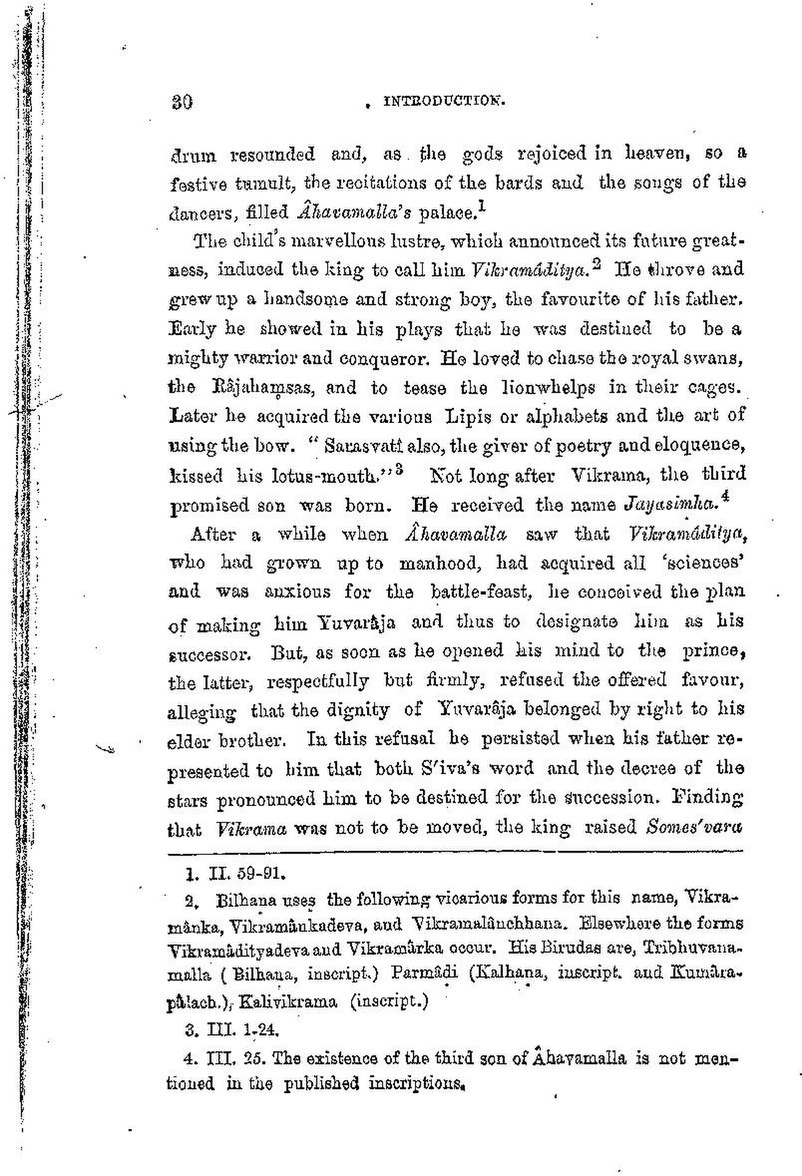30
INTRODUCTION.
drum resounded and, as the gods rejoiced in heaven, so a
festive tumult, the recitations of the bards and the songs of the
dancers, filled Ahavamalla's palace.¹
4
The child's marvellous lustre, which announced its future great-
ness, induced the king to call him Vikramaditya.2 He throve and
grew up a handsome and strong boy, the favourite of his father.
Early he showed in his plays that he was destined to be a
mighty warrior and conqueror. He loved to chase the royal swans,
the Rajahamsas, and to tease the lionwhelps in their cages.
Later he acquired the various Lipis or alphabets and the art of
using the bow. "Sarasvati also, the giver of poetry and eloquence,
kissed his lotus-mouth.8 Not long after Vikrama, the third
promised son was born. He received the name Jayasimha."
After a while when Ahavamalla saw that Vikramaditya,
who had grown up to manhood, had acquired all 'sciences'
and was anxious for the battle-feast, he conceived the plan
of making him Yuvaraja and thus to designate him as his
successor. But, as soon as he opened his mind to the prince,
the latter, respectfully but firmly, refused the offered favour,
alleging that the dignity of Yuvarâja belonged by right to his
elder brother. In this refusal be persisted when his father re-
presented to him that both S'iva's word and the decree of the
stars pronounced him to be destined for the succession. Finding
that Vikrama was not to be moved, the king raised Somes'vara
1. II. 59-91.
2. Bilhana uses the following vicarious forms for this name, Vikra-
månka, Vikramankadeva, and Vikramalânchhana. Elsewhere the forms
Vikramadityadeva aud Vikramarka occur. His Birudas are, Tribhuvana.
malla (Bilhana, inscript.) Parmadi (Kalhana, iuscript. aud Kumara-
palach.), Kalivikrama (inscript.)
3. III. 1-24.
4. III. 25. The existence of the third son of Ahavamalla is not men-
tioned in the published inscriptions.
पृष्ठम्:विक्रमाङ्कदेवचरितम् - बिल्हण.pdf/३४
एतत् पृष्ठम् अपरिष्कृतम् अस्ति

